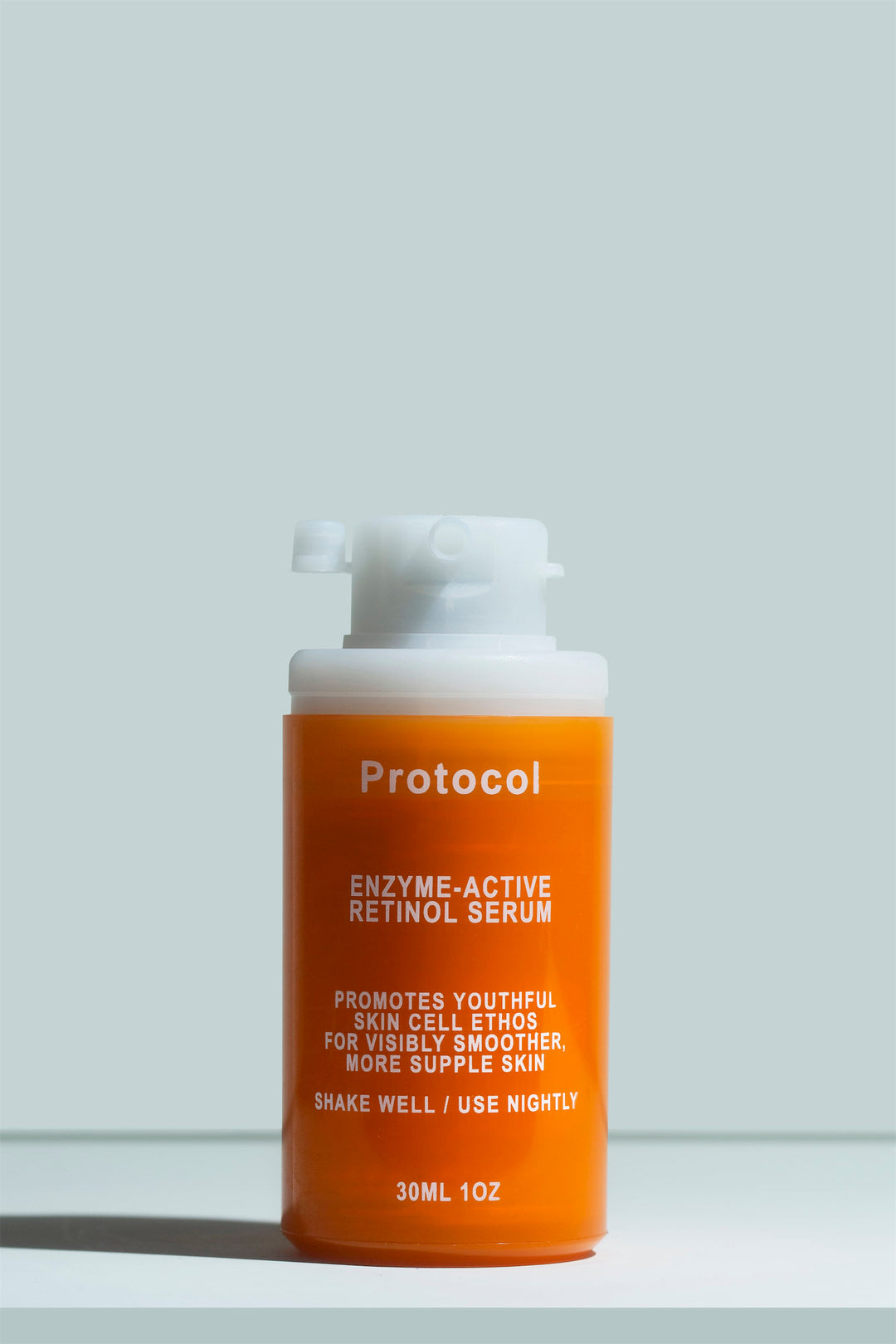Does Retinol Thin Your Skin?

Don't worry, retinol doesn't thin the skin!
Retinol is a beneficial ingredient that helps with anti-aging and breakouts while helping to make your skin firmer and stronger.
You probably already knew this, but one day you came across a comment or blog post that said, “actually, retinol can cause skin thinning or damage.” Now, you find yourself having second thoughts about what you thought was an anti-aging staple.
So does retinol thin the skin? For the most part, no, and it certainly doesn't cause damage when used correctly.
In this guide, we explain exactly how retinol impacts the skin, with the nuances of what it thins out, what it thickens, and why that’s fantastic for your epidermis.
Does retinol thin the skin?
So let’s get to the heart of the matter: Overall, retinol does not thin your skin; it actually does the opposite. Retinol thickens the lower layers of the epidermis, and in some cases, it can even give the dermis a boost.
From gentle cosmetic retinol to full-strength retinoic acid, the different types of retinoids impact receptors in the skin that trigger cell regeneration. This stimulates healthier production of new skin cells and even improves the production of connective proteins like collagen and elastin in the dermis.
So over time, retinol actually makes your skin thicker, in the best way possible.
Where did the skin-thinning myth come from?
We think that the misconception that retinol thins the skin comes from a misunderstanding of skin terminology.
There is one layer of the skin that retinoids make thinner - the stratum corneum. The stratum corneum is the outermost layer of the epidermis, and it’s made up of skin cells that have reached the end of their lifecycle.
Having a thicker stratum corneum is often a sign that the skin isn’t doing a good job shedding dead skin cells, and it leads to skin texture and prominent wrinkles. One of retinol’s effects is to make the stratum corneum more compact, which results in smoother skin, diminished texture, and softened wrinkles.
Initially, retinoids often induce skin peeling or flaking, as the surface of the skin struggles to deal with the regeneration of skin cells in the lower layers. This might also be part of the misconception - if your skin is shedding, maybe it's getting thinner. Well, as we’re happy to report, that’s not the case.
What makes skin thinner?
So your retinol doesn't make your skin thinner, but here are some factors that can lead to skin thinning:
- Aging is the main factor behind skin thinning - as we get older, our skin slowly gets thinner and thinner. This process is largely inevitable, but a skincare routine that includes retinoids and sun protection may help slow it down a little.
- Genetics are also a factor in how quickly your skin will thin throughout your lifetime.
- Sun exposure is one of the most destructive forces when it comes to the health of your skin. It causes faster cell degradation which leads to skin thinning over time.
- Pollution, cigarette smoke, and other sources of free radical damage can also damage your skin and lead to thinning.
- Topical steroids such as those found in eczema treatments are known to thin the skin, which is why doctors caution against overuse.
Does retinol thin skin under the eyes?
Just as retinol doesn't thin the skin in general, it also shouldn't thin the skin around the eyes. However, there is a greater risk of skin irritation when using retinoids around the eyes, and there are some concerns that topical retinoids can cause dry eyes.
Be careful when using retinoids around the eyes, and pay attention to signs of irritation or eye dryness. According to a review published in the Journal of Clinical and Aesthetic Dermatology, retinaldehyde is a great option to consider since it's the most effective cosmetic retinoid and causes less irritation than prescription retinoic acid.
Meet the most transformative cosmetic retinoid
If you’re hoping for more resilient skin that also looks more youthful, smooth, and bouncy then we have great news - retinoids will help you thicken your skin where it matters while thinning out that rough surface layer.
With thousands of retinoids on the market, we’d like to advocate for our not-so-humble Enzyme-Active Retinol Serum. Made with retinal, it strikes the perfect balance between retinol’s gentleness and retinoic acid’s transformative impact.
That means a more dramatic improvement to your skin without that initial period of irritation that’s common with Rx retinoids. If you’ve been hoping to improve the quality and thickness of your skin, consider giving it a try!





